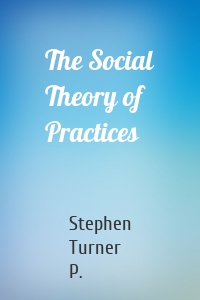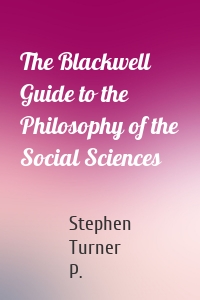Stephen Turner P.
3 кн.
Explaining the Normative
Normativity is what gives reasons their force, makes words meaningful, and makes rules and laws binding. It is present whenever we use such terms as ‘correct,' ‘ought,' ‘must,' and the language of obligation, responsibility, and logical compulsion. Yet normativists, the philosophers committed to this idea, admit that the idea of a non-causal normative realm and a body of normative objects is spooky. Explaining the Normative is the first systematic, historically grounded critique of normativism....
| Автор | Stephen Turner P. |
The Social Theory of Practices
This book presents the first analysis and critique of the idea of practice as it has developed in the various theoretical traditions of the social sciences and the humanities. The concept of a practice, understood broadly as a tacit possession that is 'shared' by and the same for different people, has a fatal difficulty, the author argues. This object must in some way be transmitted, 'reproduced', in Bourdieu's famous phrase, in different persons. But there is no plausible mechanism by which...
| Автор | Stephen Turner P. |
The Blackwell Guide to the Philosop...
The Blackwell Guide to the Philosophy of the Social Sciences collects newly commissioned essays that examine fundamental issues in the social sciences.
| Автор | Stephen Turner P. |




